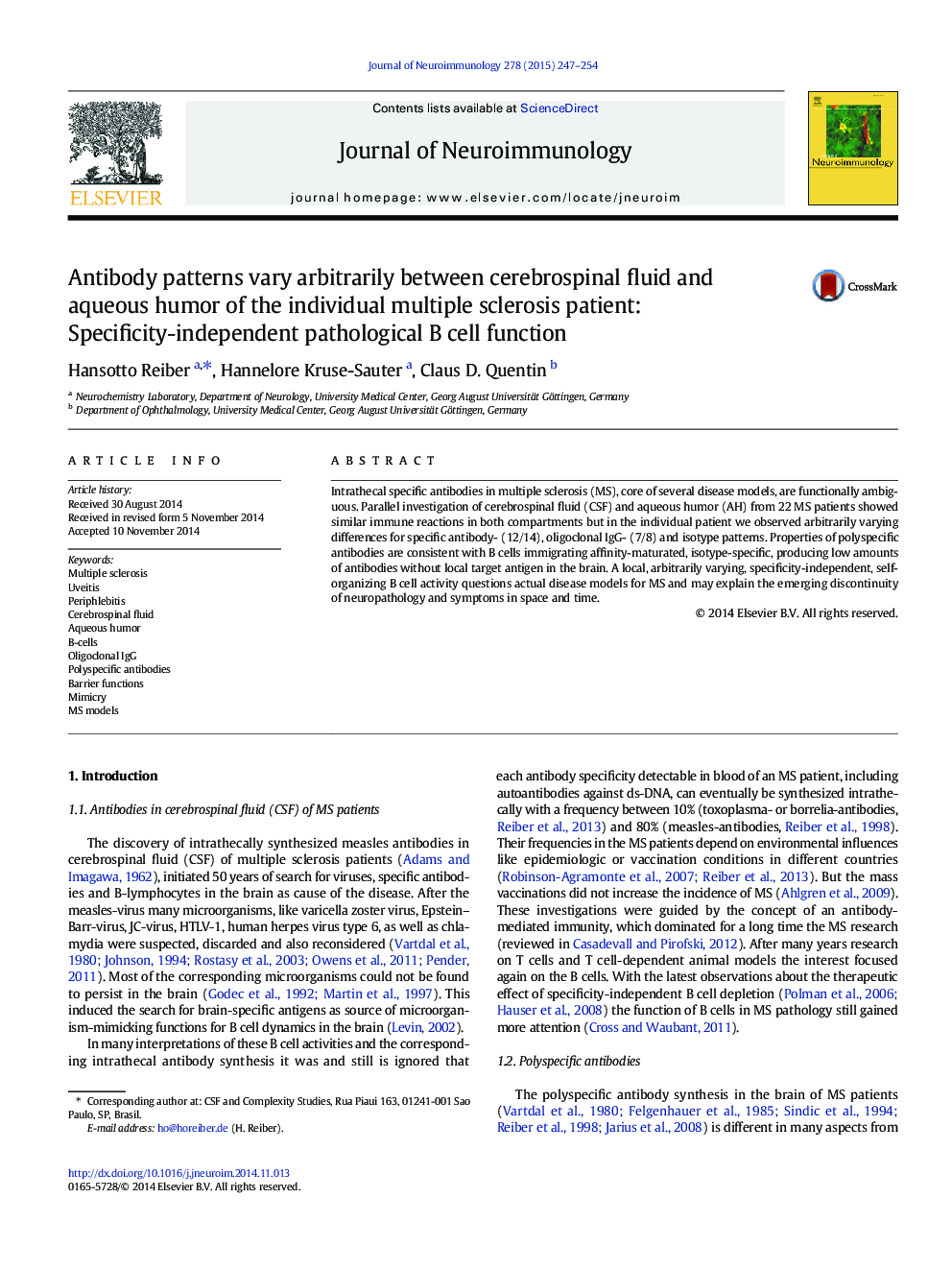| Article ID | Journal | Published Year | Pages | File Type |
|---|---|---|---|---|
| 6020338 | Journal of Neuroimmunology | 2015 | 8 Pages |
â¢Comparison of simultaneous immune response in the brain and eye of the individual MS patientâ¢Antibody-, oligoclonal IgG- and isotype patterns vary arbitrarily between CSF and AH.â¢Polyspecific antibody response in the brain is different from antigen-driven synthesis.â¢Locally varying, specificity-independent B cell activities are place- and time-dependent.â¢Arbitrary varying B cell activity may explain discontinuity in the course of MS.
Intrathecal specific antibodies in multiple sclerosis (MS), core of several disease models, are functionally ambiguous. Parallel investigation of cerebrospinal fluid (CSF) and aqueous humor (AH) from 22 MS patients showed similar immune reactions in both compartments but in the individual patient we observed arbitrarily varying differences for specific antibody- (12/14), oligoclonal IgG- (7/8) and isotype patterns. Properties of polyspecific antibodies are consistent with B cells immigrating affinity-maturated, isotype-specific, producing low amounts of antibodies without local target antigen in the brain. A local, arbitrarily varying, specificity-independent, self-organizing B cell activity questions actual disease models for MS and may explain the emerging discontinuity of neuropathology and symptoms in space and time.
